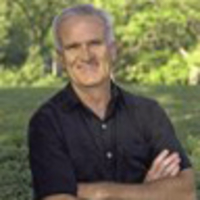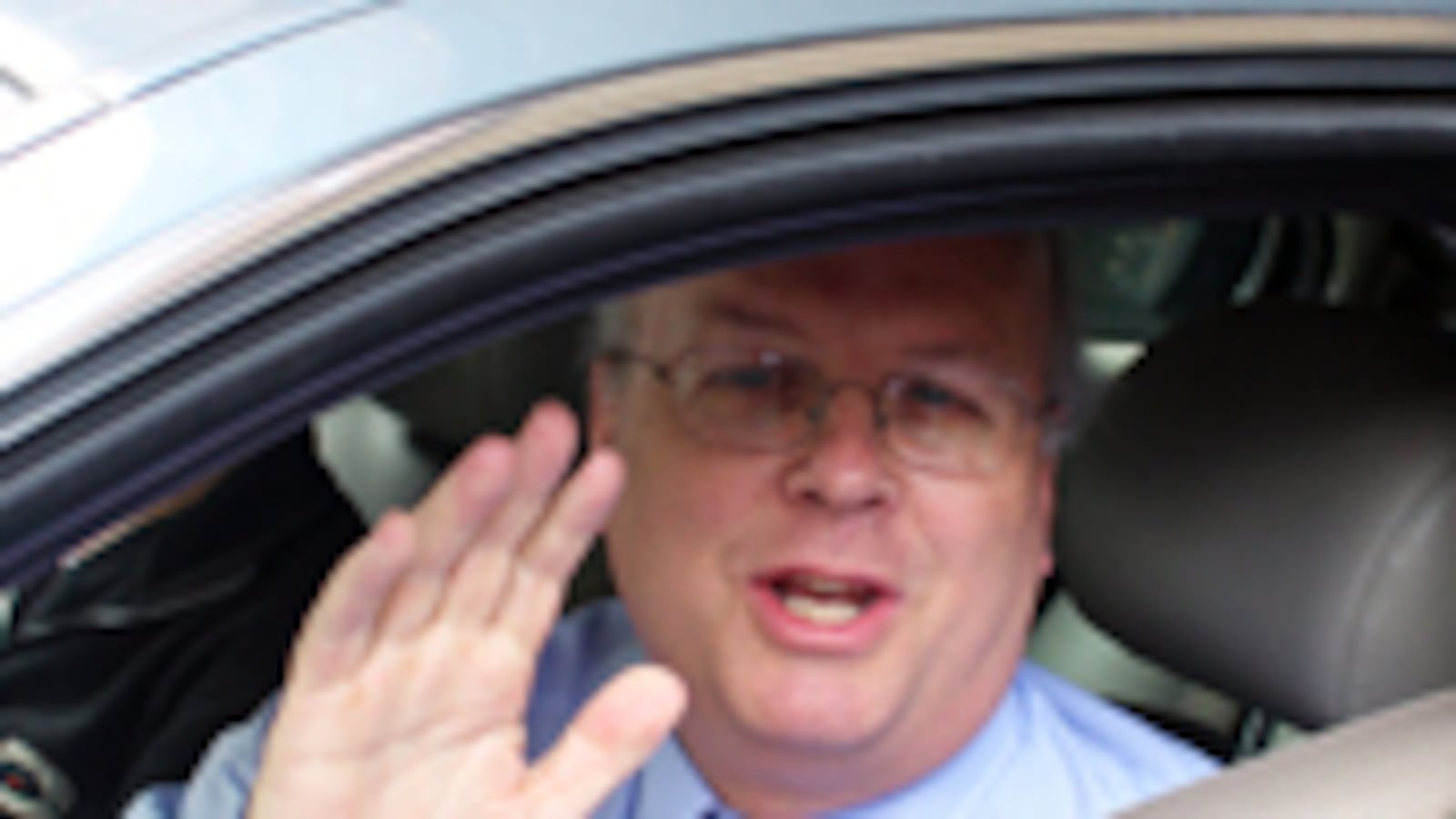
One of my chief personal goals with the departure of the Bush administration has been not to think any more about Karl Rove. If I were as indelicate as Barbara Bush, I might toss out the rhetorical jibe, “Why should I waste my beautiful mind on something like that?” Unfortunately, Rove refuses to disappear and I am saddled with knowing the historical context for his behavior, which, apparently, I am doomed to explain. My painful concession is that Rove and I are inextricably connected and share the certainty that the two words “Bush’s Brain,” the title of my biography of Karl, will be in both of our obituaries. Maybe I am obligated to keep casting a skeptical eye in the direction of his brooding darkness until we both are silenced by time.
When Rove is confronted by the same incontrovertible data he proclaims, “…I never sought to influence.” This is not denial; this is pathology.
Whenever I am compelled to consider Rove, though, my immediate thought is of a troubled soul with deep psychological issues. My sense is that in a different culture a man with such a practiced disconnection from reality would be likely to find himself marginalized instead of acting as an actor, commentator and consultant on matters of great social and political import. Even an armchair psychiatrist can see Rove is most likely pathological and much prefers the manufactured realities delivered to him by his determined mind than the sensory input he gets from the actual world.
Sure, I realize that is a slightly hyperbolic assertion, but allow me to build my case. There is no better body of evidence that the convolutions of Rove’s brain work in interpretive fashions far different from normal than the recent documents, including deposition transcripts and White House emails, revealed by the House Judiciary Committee. The material relates the involvement of Rove and White House Counsel Harriet Miers in the political firings of U.S. attorneys that were not serving Republican political purposes. Virtually every news outlet reported on the documents and characterized them as proof of political machinations by Rove and the Bush administration in the scheme to replace targeted U.S. attorneys.
Unsurprisingly, Rove’s near mystical insight offers an interpretation not accessible to those of us with normal neural pathways. “They [documents] show politics played no role in the Bush administration’s removal of U.S. Attorneys,” he wrote in a hurried statement after the release of the evidence, “that I never sought to influence the conduct of any prosecution, and that I played no role in deciding which U.S. attorneys were retained and which replaced.”
What evidence led him to this absurd conclusion?
According to testimony from Miers, Rove phoned her during a trip he made to New Mexico in September 2006 in an “agitated” state, telling her that U.S. Attorney for New Mexico David Iglesias was “a serious problem and he wanted something done about it.” Iglesias had been under great pressure from Senator Pete Dominici and another Republican, Congresswoman Heather Wilson, to press voter fraud cases against Democrats that might help the GOP in New Mexico. Iglesias refused to politicize his investigations or expedite them for electoral effect. Rove also wanted Iglesias to bring political corruption cases that he believed were harmful to Patsy Madrid’s candidacy, Wilson’s Democratic opponent. Scott Jennings, an aide in Rove’s office, forwarded Rove an email from Wilson complaining that Iglesias had been “shy about doing his job on Madrid.”
Curiously, during this same time period leading to October of 2006, Iglesias had been listed in the Department of Justice’s “top rankings.” Nonetheless, the assault continued. Domenici and his staff, according to Rove’s own testimony, White House phone logs, and emails, talked to Rove four times about Iglesias during that October 2006 election campaign trying to get the lawman booted. Just two weeks later Iglesias’ name was placed on the final firing list of U.S. attorneys. Rove, of course, says he was not involved.
In a rational mind, the hammer of facts beats you about the head when you read the evidence from the committee. Rove is “agitated” about Iglesias and “wants something done” because the attorney is a “serious problem.” His assistant Jennings is facilitating a campaign, which was certainly not an initiative he would have launched without political authorization. I wonder where that plan might have originated. Yet, when Rove is confronted by the same incontrovertible data he proclaims, “…I never sought to influence.” This is not denial; this is pathology. His psyche has pitched its tent in one of his “alternate realities.”
In 30 years of watching Rove operate and writing on his political finagling, I can say unequivocally that a chief characteristic of each of his strategies involves operatives that give him distance from accountability. Rove’s testimony, for example, skewered his former assistant Jennings by accusing him of “freelancing a little” and “trying to move things along” by “surreptitiously” arranging a meeting between New Mexico Republicans and DOJ officials. The uninitiated can be forgiven for buying into this characterization, but even the sleepy observers of Rove’s work in the Washington press corps know that not a soul he employs ever flushes a toilet or turns on a wall switch without express, detailed instructions from the boss. Rove is abnormally skilled at convincing the audience that the pawn moved on its own to that particular square on the chess board.
Using his skills at misdirection, obfuscation, and denial, Rove also managed to plan and execute the leaking of a CIA agent’s name as an act of political vengeance. After he told Chris Matthews of MSNBC’s Hardball that Ambassador Joseph Wilson’s wife was “fair game,” the public was made aware that Valerie Plame was an undercover operative for the spy agency. Rove, of course, was at a safe distance from the unfolding plot, which, either he devised or had simply spontaneously generated. The operation was fueled by the zealotry of the vice president’s office and Dick Cheney’s chief of staff Scooter Libby and to insure an even greater remove for Rove and Bush the initial leak was likely made by uber-conservative and former State Department official Richard Armitage (who desperately wanted to be appointed CIA director). Rove refined this operational template in Texas. Few investigators ever plumb the natural contradiction that the consultant who built his political reputation on knowing every minute detail always manages to be oblivious to the most potent maneuvers taking place precisely under his nose.
Rove knows to exercise caution and never answer questions under oath because his perceptual skills turn him into an elephant tramping across rice paper. Even when sworn statements implicating him are introduced as evidence, he manages to convince himself they are neither true nor accurate. I have watched him lie about being involved with an FBI investigation into Texas Democrats even as the reporters he was leaking information to were being directed to agents conducting the probe, and I have stood in his Austin office as he told his first tall tale about a wireless listening device he himself planted to make it look like his work was so successful he needed to be bugged by his enemies. He never seems to get caught.
Rove is also implicated in the prosecution of former Alabama Democratic Governor Don Siegelman—and the accusations come from a lifelong Republican. Siegelman had just lost a close race to Republican Bill Riley and the Democrat wanted a recount. Riley and the GOP just wanted Siegelman to concede, but they knew he was determined. William Canary, a senior Republican consultant to Riley, put together a conference call and urged Riley’s campaign “not to worry — that he had already gotten it worked out with Karl and Karl had spoken with the Department of Justice and the Department of Justice was already pursuing Don Siegelman.”
The fact that this quote and information comes from a credible person that had been included on the conference call does not seem to have yet registered with one Karl Christian Rove. Dana Jill Simpson, the Republican attorney working for Riley, offered the detail in a sworn affidavit and later was reported to say, “There was absolutely no question it was Karl Rove, no doubt whatsoever.” Siegelman, of course, was prosecuted and convicted of doing something that happens every day in American politics: he gave a job to a political donor. (He is free while the case is being appealed.) The fact that the federal judges and U.S. attorneys and the republican governor and various political operatives in the case all were clients or friends of Rove, who had worked extensively in Alabama, is, again, apparently irrelevant on Planet Karl.
Whenever my Austin friends start talking about obscure topics like karma, I am forced to bring up the name of Karl Rove. His debt is arguably enormous and he has yet to make a single payment for all the sadness and pain he has set loose upon our democracy. He is not a poster boy for karmic justice and I am not alone when I say I am weary of this man.
I do, however, wish that for his sake, his family’s, and, yes, for the benefit of his country, that Karl Rove would finally seek professional help.
James C. Moore is a communications consultant living in Austin, Texas and the author of the best-seller, “Bush’s Brain: How Karl Rove Made George W. Bush Presidential,” along with two other critical books on the Bush administration. He writes regularly at www.moorethink.com.






